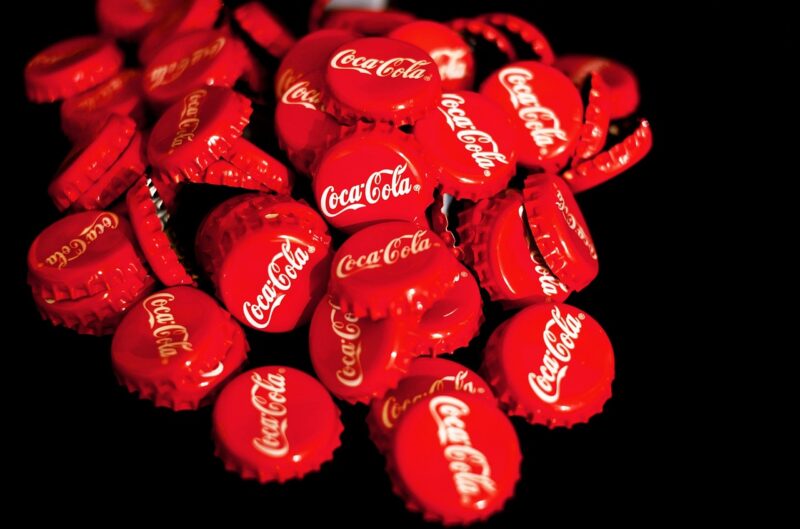
In a world where consumers are bombarded with choices, brand loyalty stands out as a critical factor in the purchasing decisions of individuals. Coca-Cola and Pepsi, two of the most recognized beverage brands globally, epitomize this phenomenon. Despite both offering similar products, their customer bases differ significantly, prompting the question: What is it about Coca-Cola that drives consumer loyalty in a market shared with Pepsi?
As we delve deeper into the psychology of branding, we’ll explore several aspects leading to Coca-Cola’s superior brand loyalty and consumer preference.
1. The Importance of Brand Identity
Brand identity is the collection of elements that a brand incorporates to present itself to consumers. Coca-Cola has effectively established a strong brand identity characterized by its iconic logo, distinctive red color, and timeless branding campaigns. The brand’s slogan, “Open Happiness,” conveys an emotional message that resonates with consumers, reinforcing positive feelings associated with the product.
Conversely, Pepsi has taken a different route, often associating its identity with youth culture and pop music, leveraging endorsements from various celebrities. While effective, this strategy seems less universal than Coca-Cola’s approach, which emphasizes a sense of nostalgia and happiness, appealing to a broader demographic.
2. Emotional Connection and Storytelling
Coca-Cola excels at evoking emotions through storytelling. The brand has built a legacy of memorable advertising campaigns that foster a deep emotional connection with its audience. The famous holiday advertisements featuring the Coca-Cola truck or Santa Claus have created lasting memories and traditions, thus strengthening brand loyalty across generations.
Research indicates that consumers are more likely to remain loyal to brands that resonate with their emotions. In contrast, Pepsi’s marketing has sometimes focused on being trendy and contemporary, which, while appealing to younger consumers, may not build the same depth of connection. The emotional resonance of a brand significantly influences consumer behavior – and Coca-Cola has tapped into this expertly.
3. Consistency in Marketing and Experience
Coca-Cola’s marketing strategies emphasize consistency over time. The brand has maintained its visual identity and messaging, which helps reinforce its presence and recognition in people’s minds. In contrast, Pepsi has undergone numerous rebranding efforts and shifts in its marketing strategy, which, while creative, may lead to diluted brand recognition and consumer loyalty.
Moreover, the experience associated with Coca-Cola, from its served temperature to the iconic sound of opening a bottle, enhances consumer satisfaction. This attention to detail results in a coherent brand experience that invites customers to return time and again.
4. The Role of the Product itself
While marketing strategies are critical, the actual product quality plays a substantial role in brand loyalty. Many consumers express a preference for the taste of Coca-Cola over Pepsi, attributing its unique flavor profile to their loyalty. Various blind taste tests have shown that a slight majority favor Coca-Cola, though opinions can be subjective.
Additionally, Coca-Cola offers a wider variety of products beyond its flagship soda, including influential brands like Sprite, Fanta, and bottled water brands like Dasani. This diversified product line allows Coca-Cola to cater to various consumer tastes while reinforcing overall brand loyalty through associated products.
5. Social Responsibility and Community Engagement
Brand loyalty is also influenced by a company’s social responsibility initiatives. Coca-Cola has invested significantly in community engagement, environmental sustainability, and charitable endeavors. Programs aimed at providing clean water, supporting education, and promoting recycling resonate well with consumers who prioritize corporate social responsibility. These efforts foster a positive brand image that encourages enduring loyalty.
Pepsi has undertaken similar initiatives; however, Coca-Cola’s longstanding commitment to social causes has often been more visible and impactful, leading to a stronger perception of their brand within communities.
6. Conclusion: The Enduring Appeal of Coca-Cola
Ultimately, the loyalty that consumers exhibit towards Coca-Cola over Pepsi stems from a complex interplay between branding, emotional connection, quality, and corporate responsibility. Coca-Cola has effectively crafted a brand that resonates on a deeper, emotional level with its audience while maintaining a consistent product experience.
As competition continues to evolve in the beverage industry, Coca-Cola’s focus on building and nurturing these emotional ties will likely continue to solidify its position as the front-runner in brand loyalty. For consumers, it’s not just about choosing a drink but choosing a brand that aligns with their values, creates positive experiences, and evokes cherished memories — a true testament to the power of brand loyalty.




